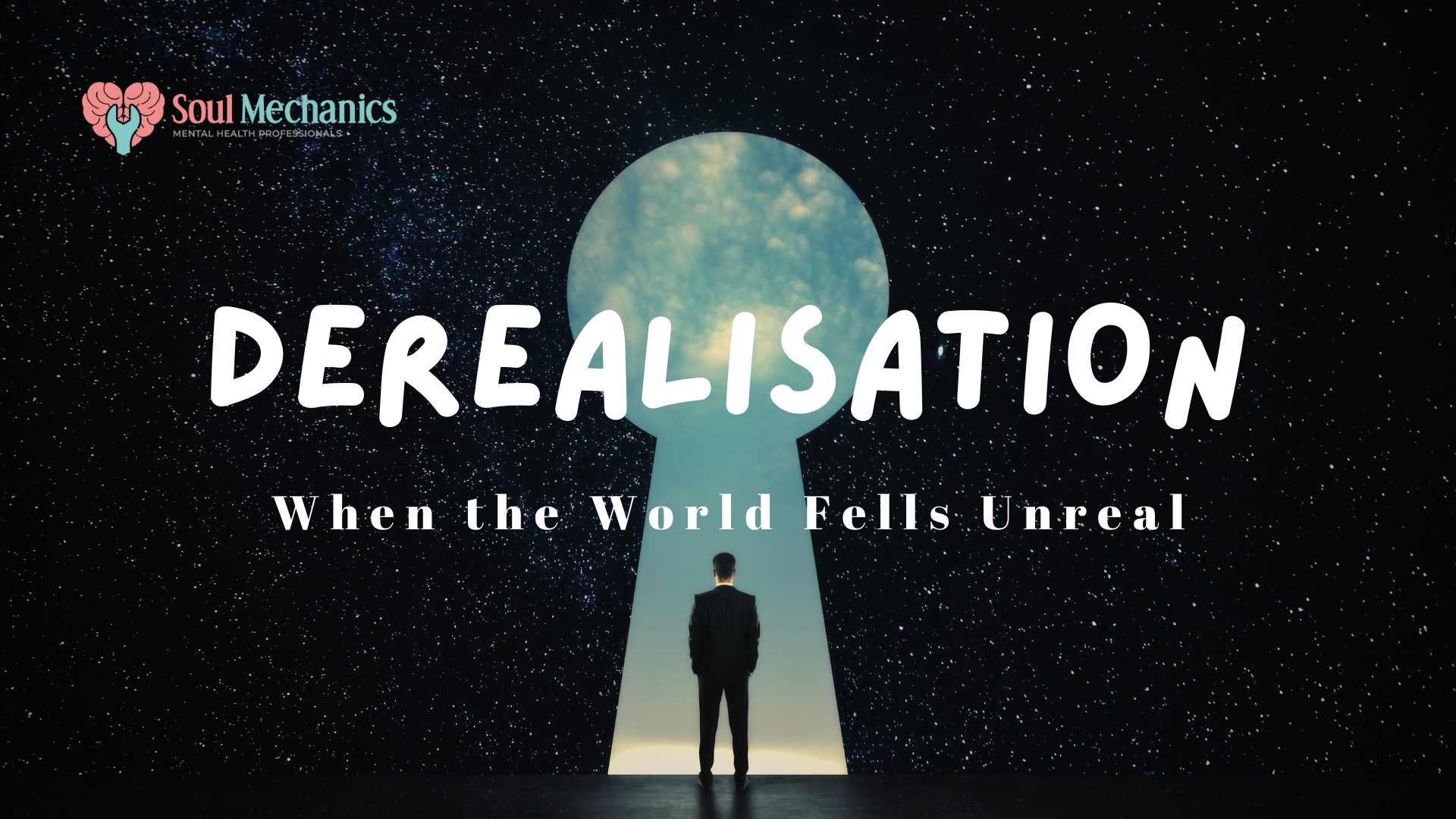Understanding Derealisation: When the World Feels Unreal
Understanding Derealisation: When the World Feels Unreal

Written By: Kelly Chan Jia Li, Clinical Psychologist (MAHPC(CP)00353)
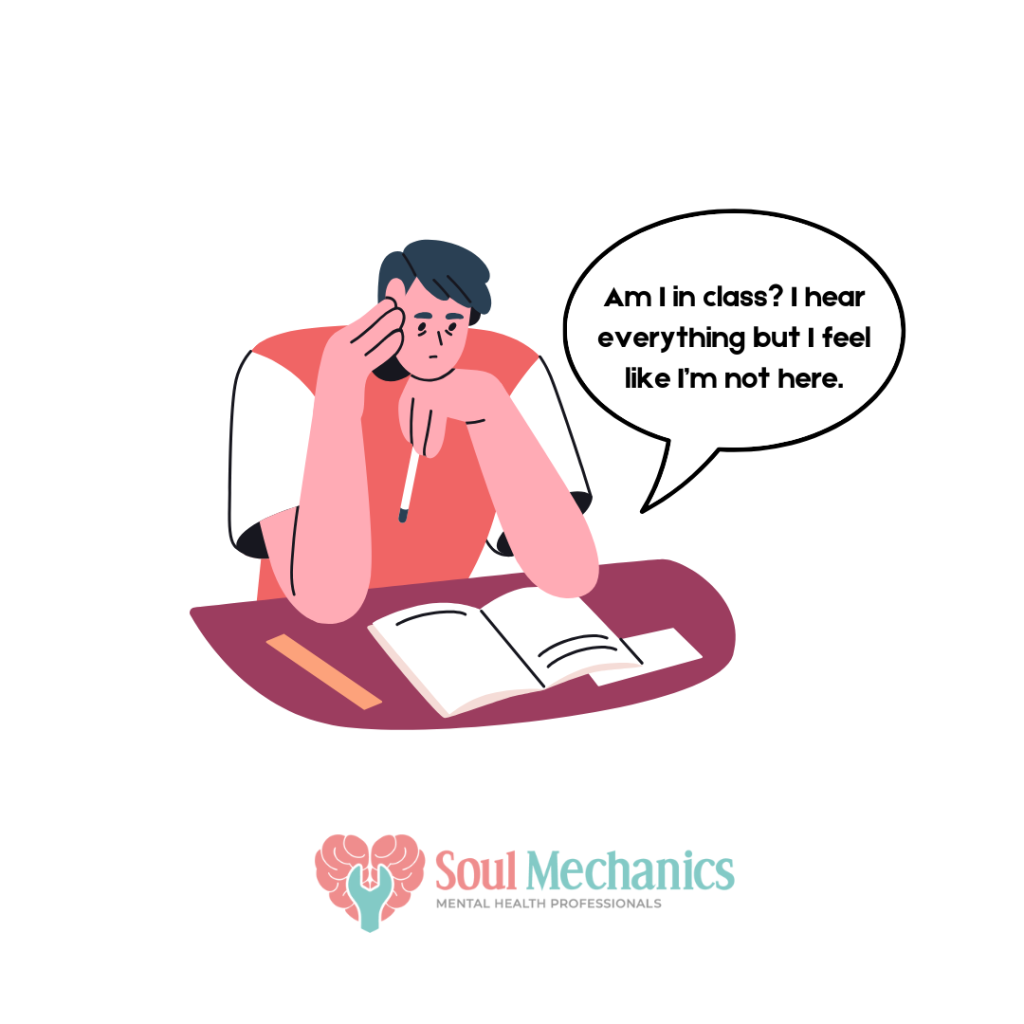
Imagine walking through a busy city street, but instead of feeling present, everything around you seems distant, dreamlike, or strangely unfamiliar. The buildings and even the sound of traffic feel like part of a movie or a foggy memory. The people, objects, and even familiar places feel distorted or unfamiliar. This unsettling experience is called derealisation. It is a condition that many people experience, yet it often goes misunderstood or unnoticed. Let's unpack what derealisation is in detail in this article.
What is Derealisation?
Imagine sitting at your dining table, but the chairs, walls, and even the faces of your loved ones feel like they are part of a strange movie set. You know it is real, but it does not feel real.
Derealisation is the feeling that the world around you is not real. It is as though you are viewing life through a foggy window or a veil. The colours might seem dull, sounds are muffled, objects may look distorted, people might seem robotic, and time might feel like speeding up or slowing down. Even though you know logically that things are real, it just does not feel that way. Unlike depersonalisation, where you feel disconnected from yourself, derealisation is about feeling detached from your environment.
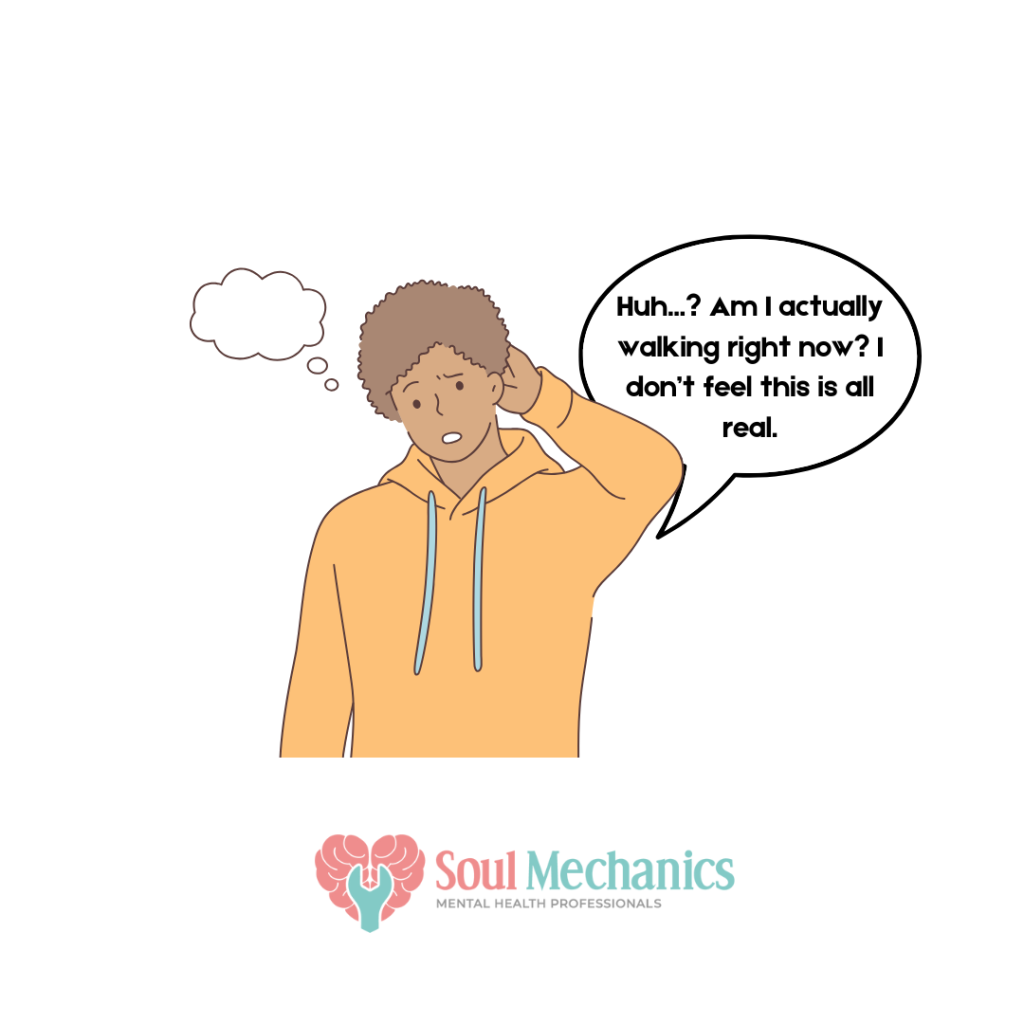
What Does Derealisation Feel Like?
Derealisation manifests differently for everyone, but here are some of the symptoms of derealisation.
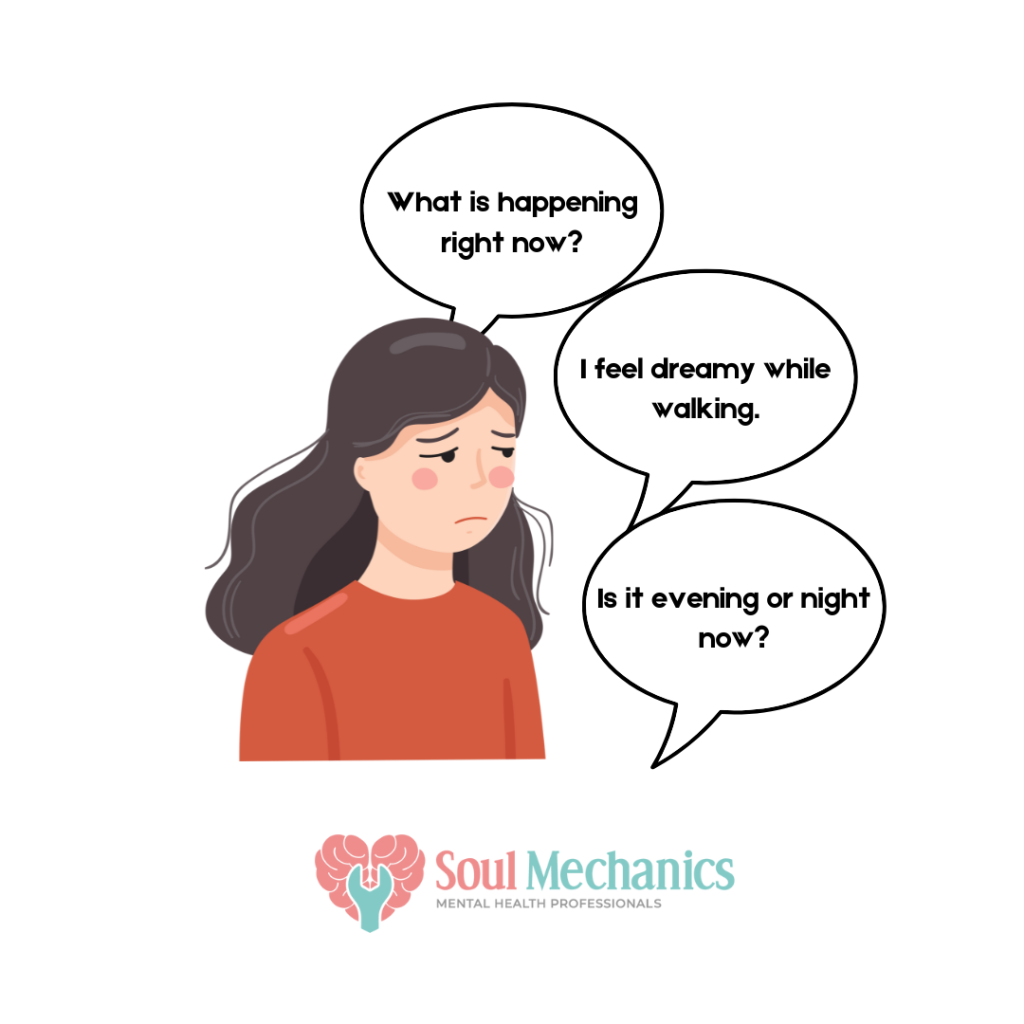
- Blurry Vision: Everything looks as though you are viewing it through a foggy window.
- Flat Emotions: You feel detached, like watching events happen, but cannot connect emotionally.
- Distorted Sounds: Voices or noises may seem distant, robotic or muffled.
- Altered Time Perception: Time might feel slower or faster than usual.
- Disconnection from Familiarity: Even the most familiar places or people might seem foreign or alien.
Why Does Derealisation Happen?
Our brains are incredibly powerful, but sometimes, they try to protect us in strange ways. Derealisation is often the brain's survival mechanism during overwhelming stress or trauma. It is like your mind hits the "pause" button to protect you from emotional overload. By creating a sense of detachment, it tries to shield us from situations that feel too intense.
High Stress and Anxiety
When you are under constant stress and anxiety, your brain enters survival mode, focusing on keeping you safe rather than processing details of reality. In this state, it can filter out sensations that usually anchor you to the present, making your surroundings feel distorted or unreal. Think of it as a circuit breaker flipping to protect the system.
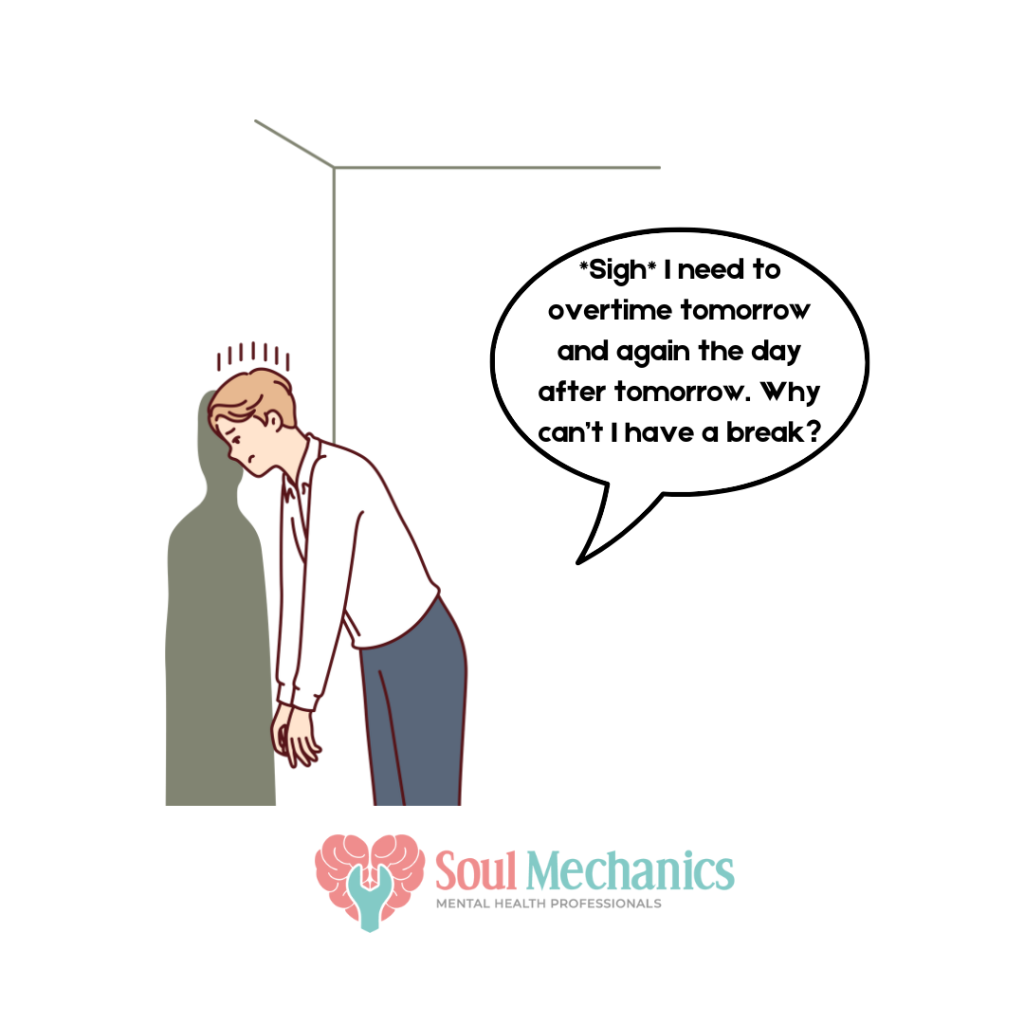
Traumatic Experiences
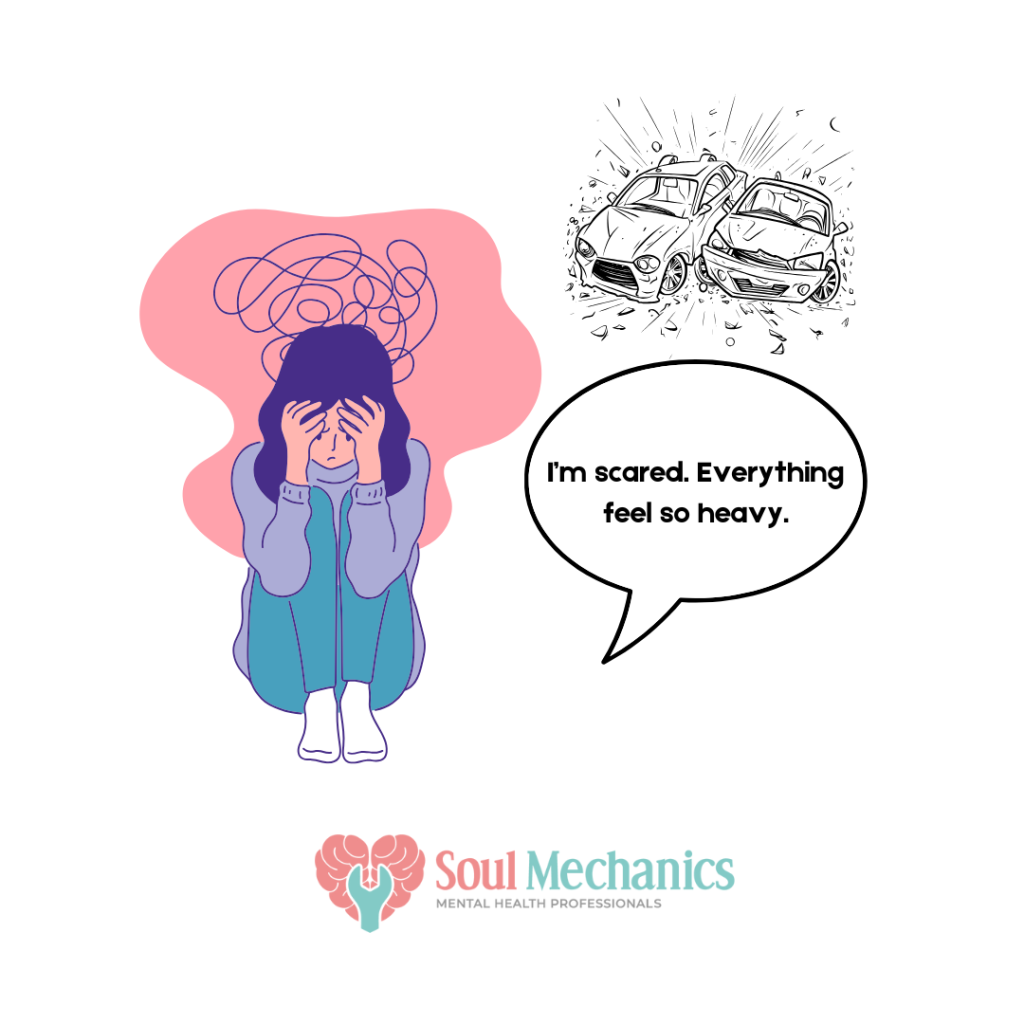
Individuals who have endured emotional and physical trauma, such as abuse, accidents, or loss, may experience derealisation as a way of emotionally distancing themselves. When faced with intense emotional pain, the brain may "shut down" the connection to reality to shield you from overwhelming feelings.
Sleep Deprivation
Sleep is critical for your brain's ability to process reality. When you are sleep-deprived, your brain struggles to filter sensory information and regulate emotions, leading to a distorted sense of the world around you. It can make everything feel hazy and surreal.
Substance Use
Certain substances, such as alcohol, caffeine, or recreational drugs, can alter your brain's perception of reality. Even after the effects of these substances wear off, some individuals would still experience lingering derealisation.
Is Derealisation Harmful?
Although derealisation can be deeply unsettling, it is not dangerous or harmful. The experience is more about your mind trying to process or protect you from something overwhelming. This temporary disconnection does not mean you are losing touch with reality or "going out of control."
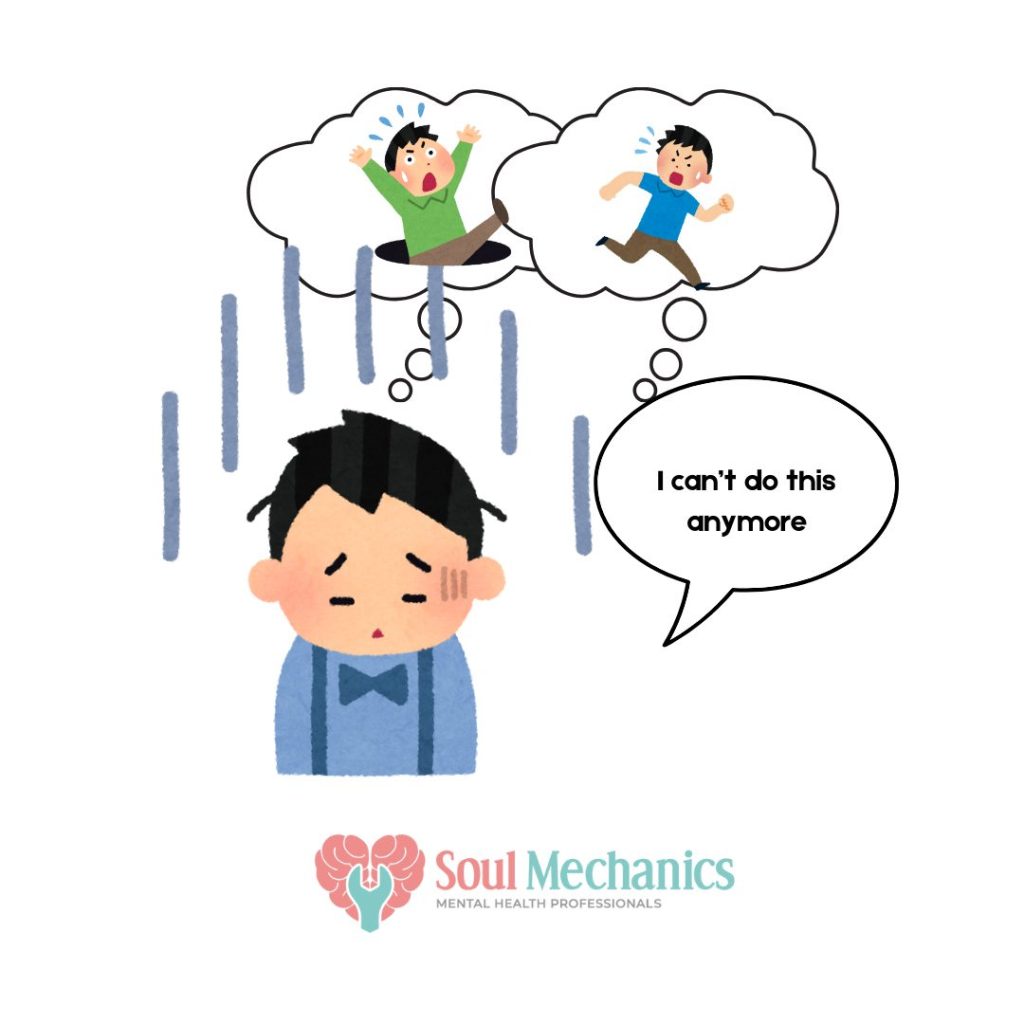
However, if derealisation becomes persistent and starts interfering with your daily life, it is essential to seek professional help. For example, a fleeting sense of detachment after a stressful day is normal. However, persistent feelings lasting weeks or months may indicate a more significant issue, especially if paired with depersonalisation.
Derealisation Versus Depersonalisation?
We often confuse derealisation with depersonalisation because they are closely related and usually occur together.
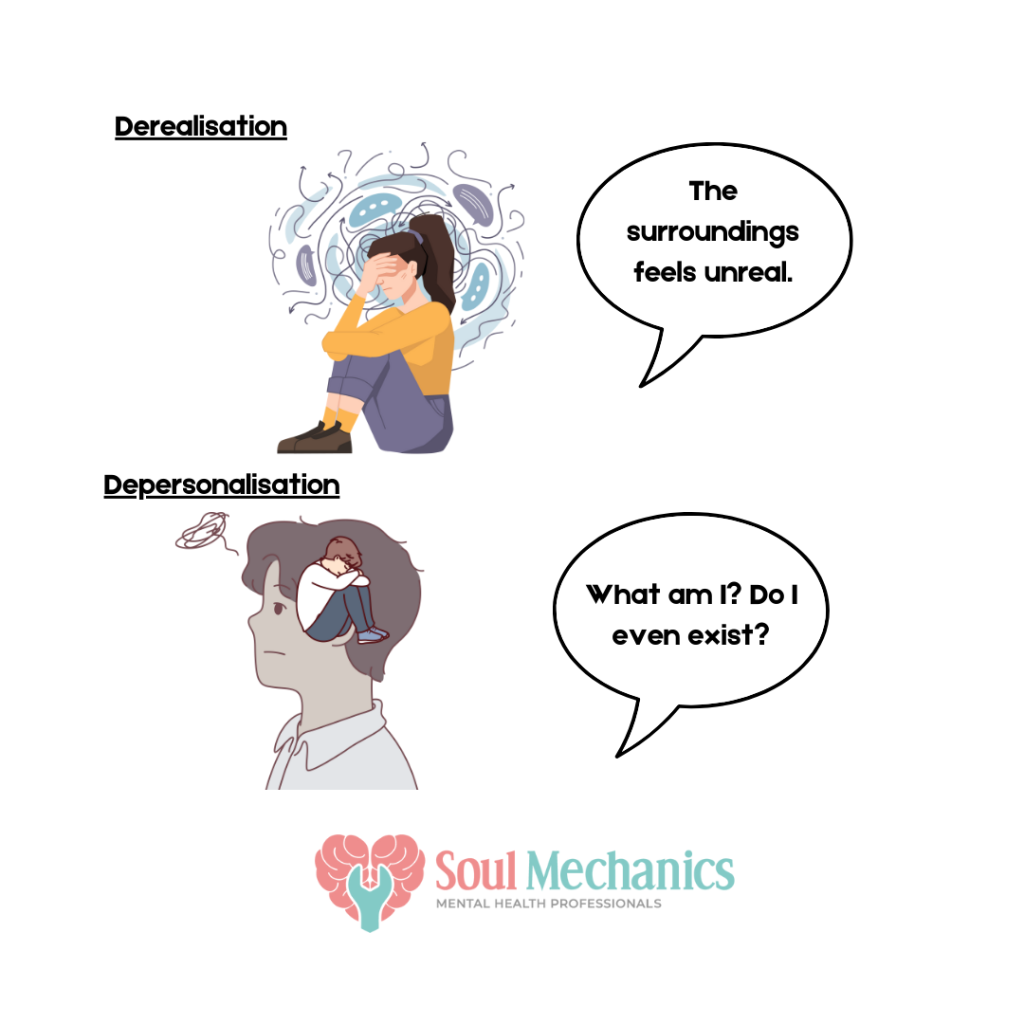
Derealisation focuses on how you perceive the external world. When someone experiences derealisation, their environment feels distorted, unreal, or dreamlike. It is as though there is a foggy filter separating them from their surroundings. Meanwhile, depersonalisation is about how you perceive yourself. It is a sense of disconnection from your own body, thoughts, or emotions as if you are observing yourself from a distance or living in someone else's body.
How Can You Cope with Derealisation?
Feeling like you are in a dream can be frightening. Hence, coping with derealisation involves grounding yourself in the present moment and addressing underlying causes like stress or anxiety.
Grounding Exercises
Grounding is like hitting the reset button for your senses. It brings your focus back to your physical senses and surroundings, helping you reconnect with reality. For example, you can focus on texture by touching an object with a distinct texture and paying attention to how it feels. You can also practice 5-4-3-2-1 exercises, in which you look around and name five things you can see, four you can touch, three you can hear, two you can smell, and one you can taste.
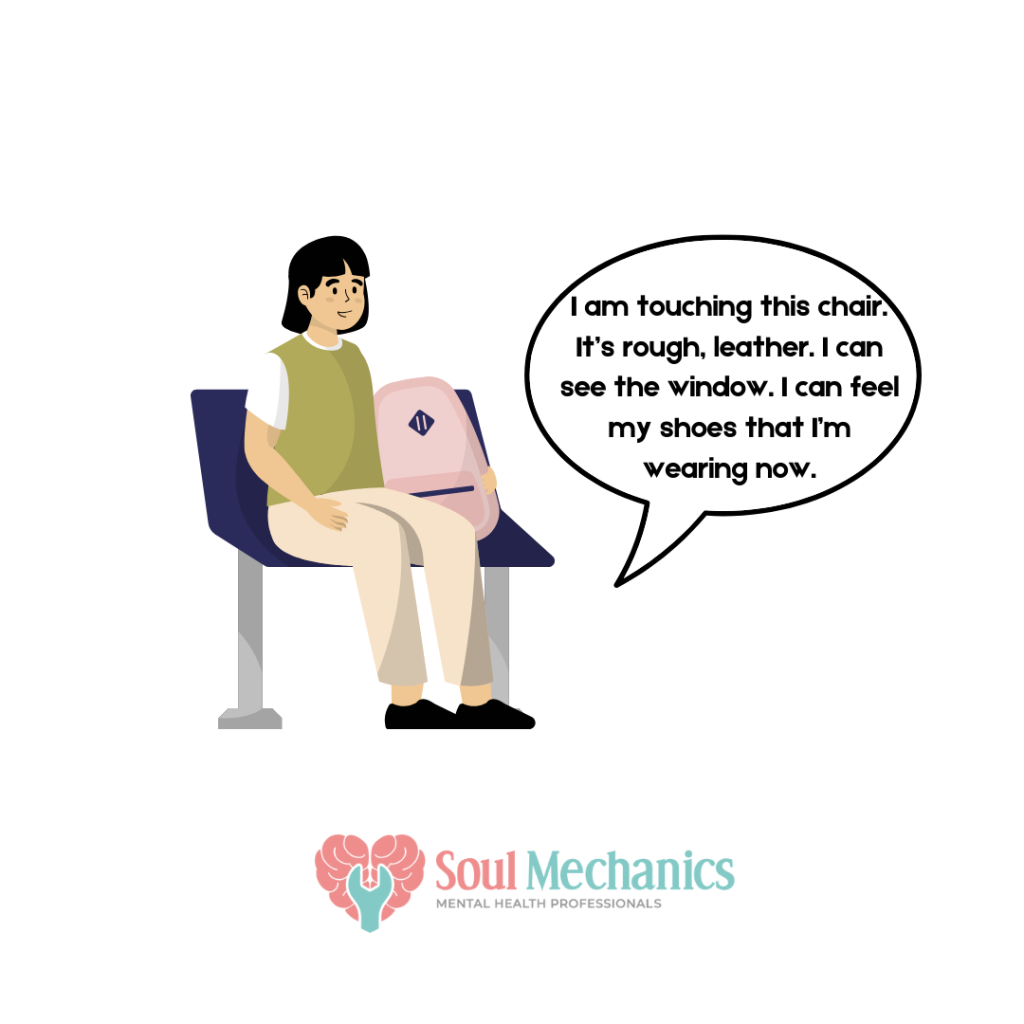
Breathe Deeply

Slow and deep breathing can calm your nervous system and bring you back to the present. Controlled breathing engages the parasympathetic nervous system, which helps counteract the fight-or-flight response that can intensify derealisation.
Let's practice mindful breathing!
Sit comfortably in a quiet space. Take a slow, deep breath through your nose for four seconds. Hold your breath for four seconds. Now, exhale slowly through your mouth for four seconds. Hold for another four seconds. Repeat this cycle for a few minutes until you feel more present.
Reframe Your Thoughts
Derealisation often comes with racing thoughts or fears, such as "Am I going out of control?" or "What if this feeling never goes away?" These thoughts can intensify your distress. Cognitive reframing can help reduce the fear and panic that often accompany derealisation, making the episodes less intense. Thoughts like, "I am losing control" can be reframed with, "This is temporary, and I will feel normal again soon."
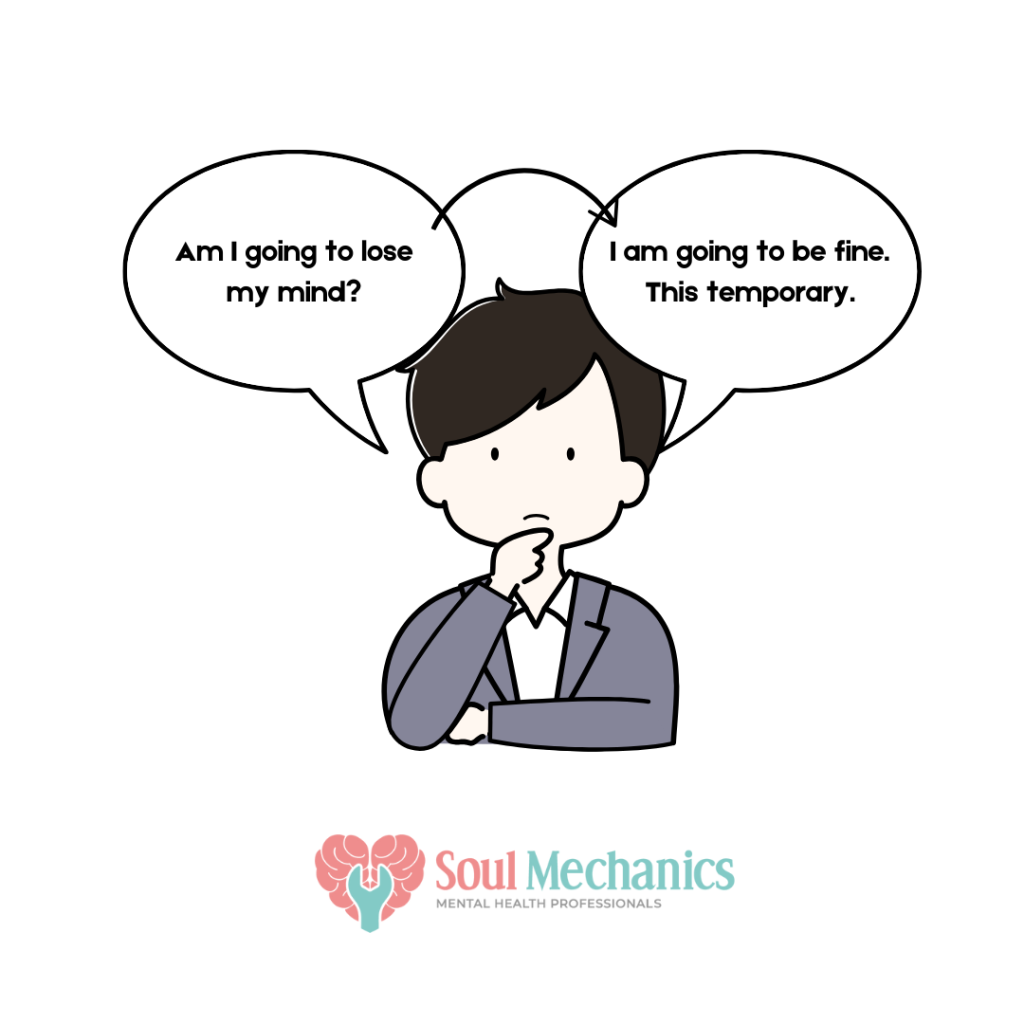
Create a Comforting Routine

Having a routine can provide stability and familiarity, which counters the disorienting nature of derealisation. You can start each day with a simple ritual, like stretching or mindfully drinking a glass of water. It is also encouraged to have some time for relaxation activities, such as mindful walking or reading. At the same time, try sticking to consistent sleep, meal, and exercise schedules to give your body and mind a sense of balance. These practices can anchor you and reduce feelings of detachment throughout the day.
Seek Professional Help
While self-help strategies are effective, persistent derealisation may require professional guidance. A mental health professional can help you to identify and address the triggers or the root cause of derealisation. Therapeutic modalities such as cognitive behavioural therapy (CBT), mindfulness-based approaches, and eye movement desensitisation and reprocessing (EMDR) are particularly effective in managing derealisation symptoms.
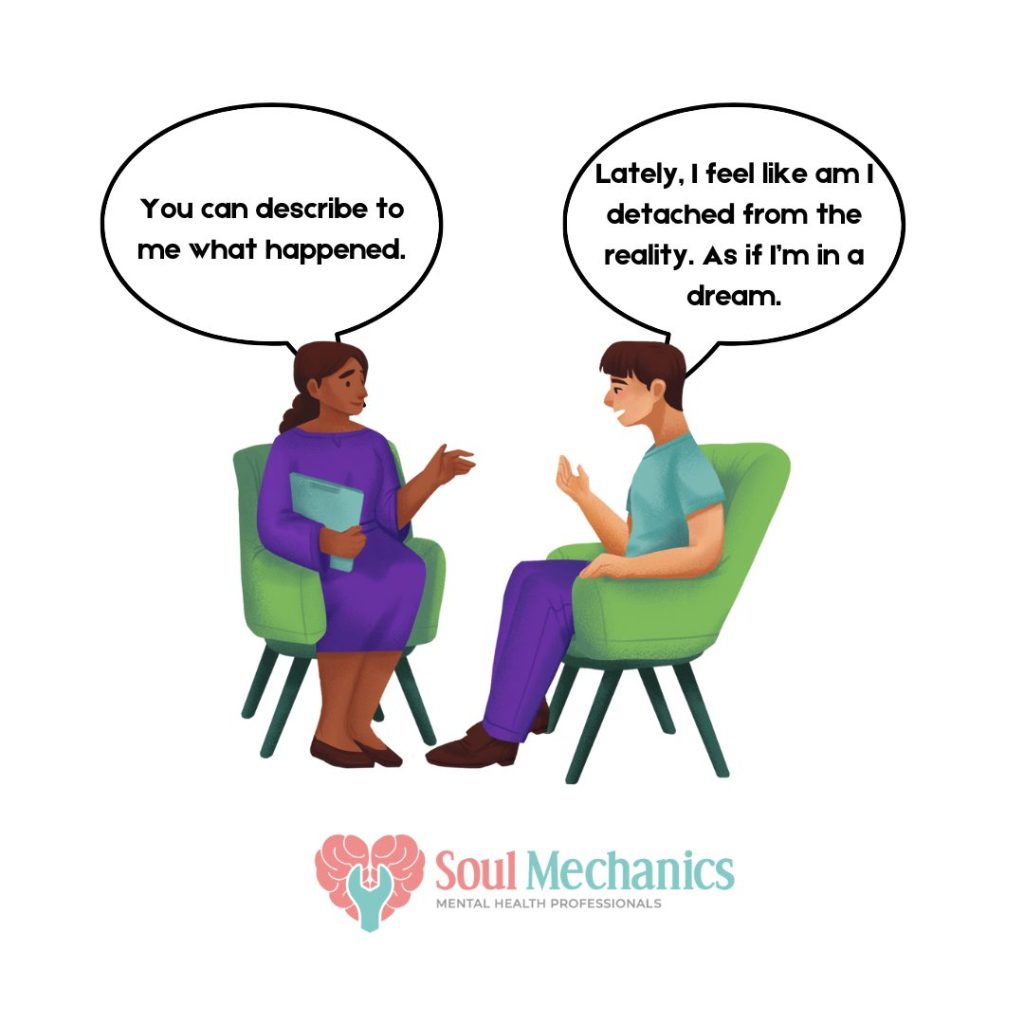
Reminder: If you feel that you are experiencing derealisation symptoms, please don't hesitate to reach out to us at Soul Mechanics KD or Soul Mechanics Ipoh. Remember, seeking help is not a sign of weakness but strength!
A Message of Hope

Derealisation can feel frightening, but it is important to remember that it is a temporary response, not a permanent state. If you feel disconnected, remember that you are not alone and what you are experiencing is valid. With the right support, you can reconnect with reality and lead a fulfilling life. So, the next time the world feels distant, remember: it is real, you are real, and there is a path back to feeling connected again. Healing is possible, one grounded moment at a time.
If you enjoyed reading this, why not broaden the horizon of knowledge by learning about "Depersonalization: Experiencing The Unreal"? You can read the blog here.
For more content related to mental health do follow us on our official Instagram.

